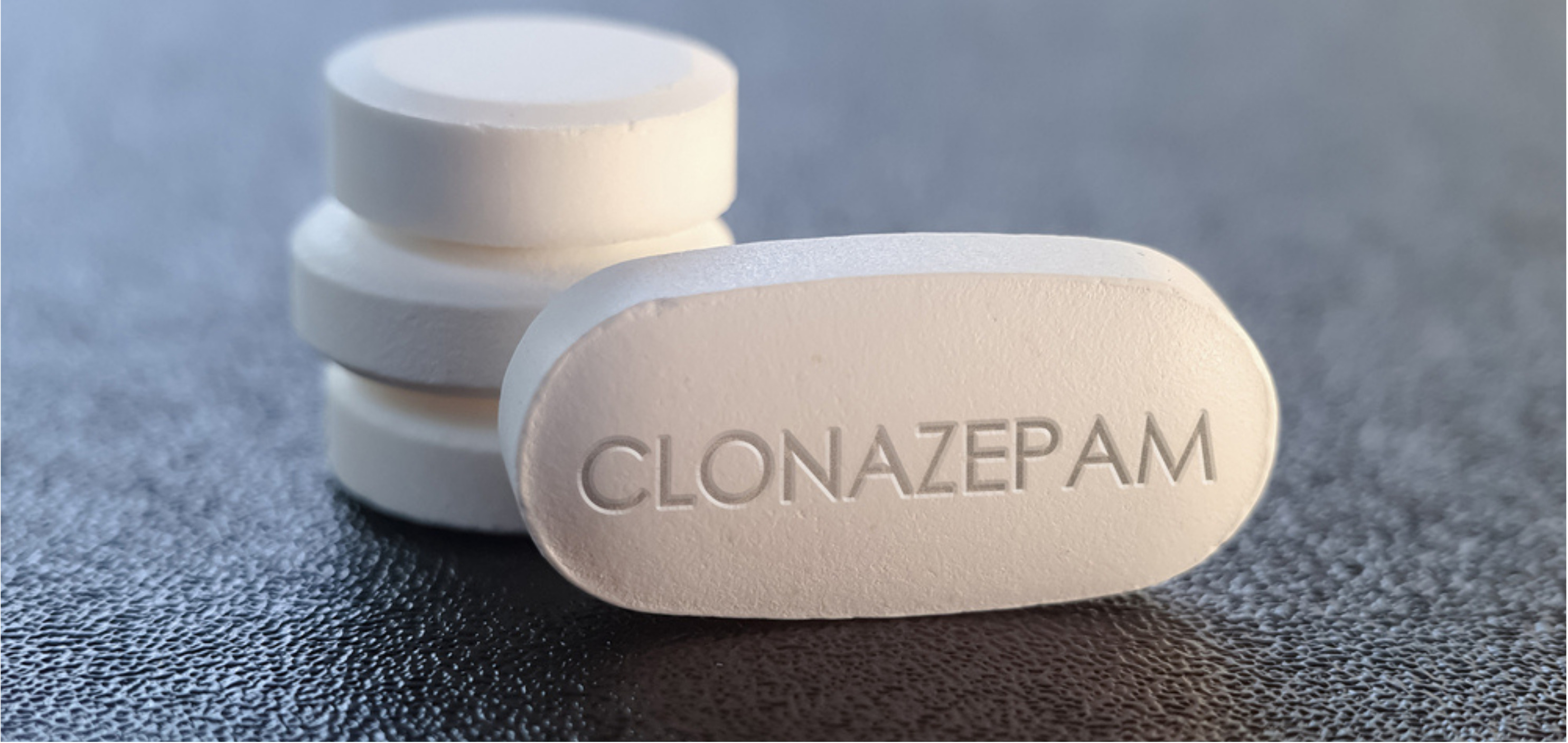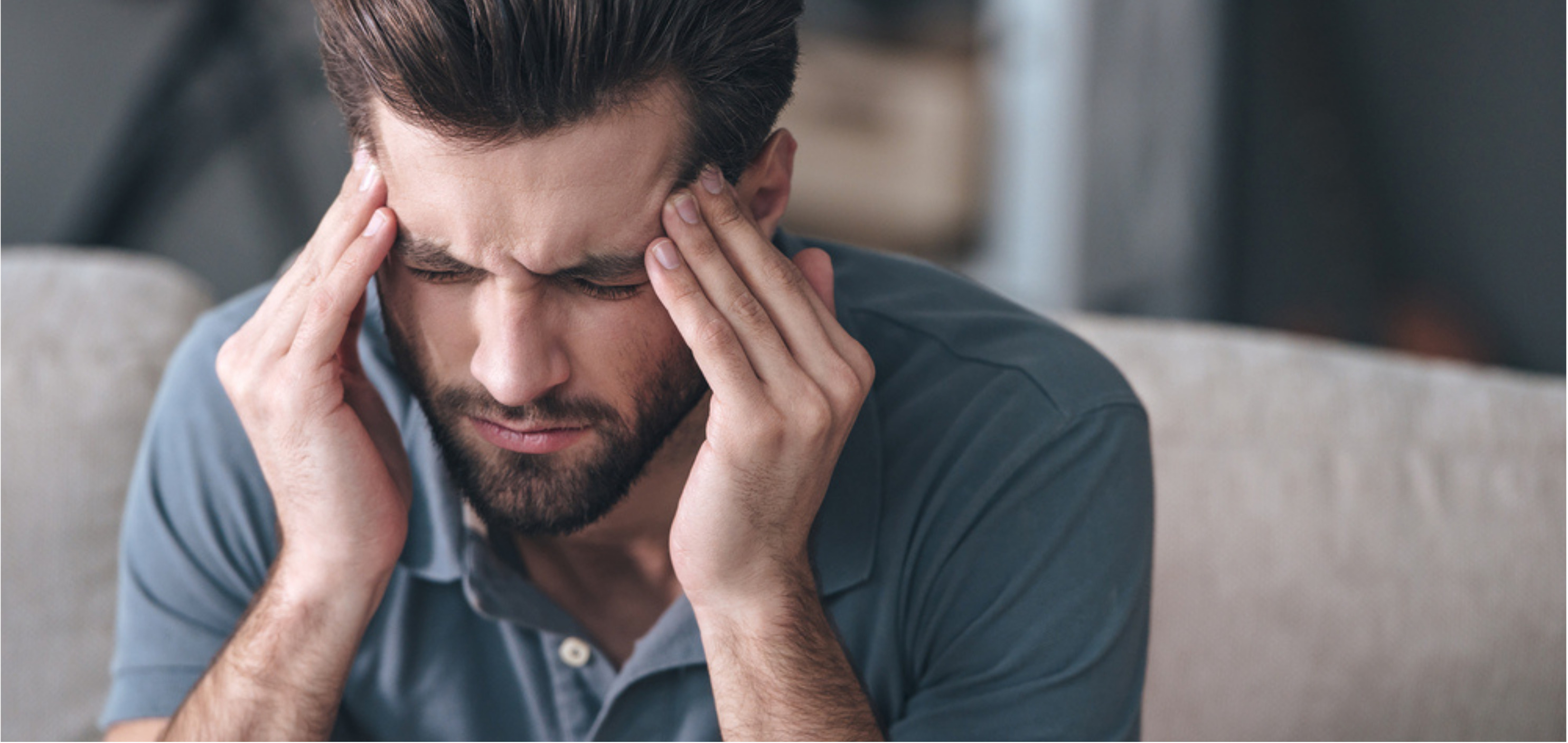Last Updated:
August 1st, 2025
Clonazepam Addiction | Symptoms, Effects and Causes
What is Klonopin?
Klonopin is the brand name for clonazepam, a type of benzodiazepine medication. It’s commonly prescribed to manage anxiety disorders, panic attacks and certain types of seizures, such as those caused by epilepsy. Klonopin works by calming the brain and nervous system, making it helpful for reducing overactive nerve activity that can lead to these issues.
Doctors also sometimes use it to treat sleep problems or restless legs syndrome, but these are less common uses. While effective, Klonopin is typically prescribed for short-term use because of its potential for dependency.
Can Klonopin be addictive?
Klonopin is addictive primarily due to how it affects the brain. As a benzodiazepine, it increases the activity of GABA, a neurotransmitter that slows down brain activity and creates a calming effect. Over time, the brain becomes accustomed to this enhanced GABA activity and starts to rely on Klonopin to maintain balance.
This dependency develops because the brain produces less of its natural calming chemicals, making it harder for the body to feel relaxed without the drug. When someone stops taking Klonopin abruptly, withdrawal symptoms like anxiety, insomnia and agitation can occur, further reinforcing the cycle of use. Its calming effects and the potential for psychological reliance make Klonopin particularly addictive if not used as directed by a doctor.
How can an addiction to Klonopin begin?
It can be confusing to understand how a Klonopin addiction might begin, especially if you or a loved one are taking it exactly as prescribed by a doctor. After all, it’s a medication meant to help, not harm. Below, we’ll explore some of the ways an addiction to Klonopin can develop, highlighting both medical and recreational misuse as potential factors.
Struggling with an addiction? If you are ready to seek help, reach out to us today, and a member of our compassionate team will help you find the best option for starting your recovery journey.
What are the signs of Klonopin addiction?
Recognising the signs of Klonopin addiction is crucial for helping yourself or a loved one take the first step toward recovery. Addiction can often be subtle at first, blending into daily life until it becomes harder to ignore. By understanding the behavioural, physical and psychological signs, you can better identify when dependency has developed and seek help before it worsens.
- Increased secrecy: Hiding the use of Klonopin or lying about the amount taken can indicate a growing dependence. This behaviour often stems from shame or fear of judgment.
- Neglecting responsibilities: Missing work, school or family commitments to obtain or use Klonopin suggests addiction is taking priority over daily life.
- Doctor shopping: Visiting multiple doctors to obtain more prescriptions is a common behaviour for those who feel they can’t function without the drug.
- Risky behaviours: Driving under the influence, or combining Klonopin with alcohol or other substances shows impaired judgment often linked to addiction.
- Chronic drowsiness: Feeling excessively tired or lethargic is a common side effect of Klonopin, which may worsen as dependency grows.
- Slurred speech: Difficulty forming clear words happens because Klonopin slows down brain and motor functions, especially at higher doses.
- Poor coordination: Frequent stumbling or clumsiness is a physical symptom linked to the sedative effects of Klonopin.
- Withdrawal symptoms: Experiencing anxiety, insomnia or shaking when not taking Klonopin can indicate the body has become dependent on it.
- Heightened anxiety: Ironically, prolonged Klonopin use can cause rebound anxiety, making the person feel worse without it.
- Mood swings: Irritability, depression or emotional instability may arise as the brain struggles to regulate emotions without the drug.
- Obsessive thoughts about Klonopin: Constantly worrying about the next dose or running out of medication signals a psychological dependence.
- Loss of interest in activities: Giving up hobbies or social interactions to focus on Klonopin use can highlight how deeply addiction has taken hold.
By identifying these signs, you can better understand the impact of Klonopin addiction and take the first step toward seeking support.
How Is a Klonopin addiction treated?
Clonazepam addiction can be treated through inpatient or outpatient rehab programmes, but for severe cases, inpatient care is highly recommended. Inpatient rehab provides a structured environment, away from triggers and distractions, ensuring the person can fully focus on recovery. Outpatient rehab, on the other hand, allows individuals to receive treatment while managing their day-to-day responsibilities, but it is typically best suited for less severe addictions.
Aftercare is also essential, offering ongoing support to maintain sobriety and prevent relapse. This might include therapy sessions, support groups or tailored plans to help adjust to life after treatment.
What are the next steps?
If you or a loved one is struggling with Klonopin addiction, don’t wait to seek help. Specialist rehab centres offer the professional care and tailored support needed to overcome addiction and reclaim your life. With expert guidance through detox, therapy and aftercare, recovery is possible.
Take the first step today by reaching out to a trusted rehab centre and start the journey toward lasting change.
Our compassionate team are ready and available to take your call, and guide you towards lasting the lasting addiction recovery you deserve.



